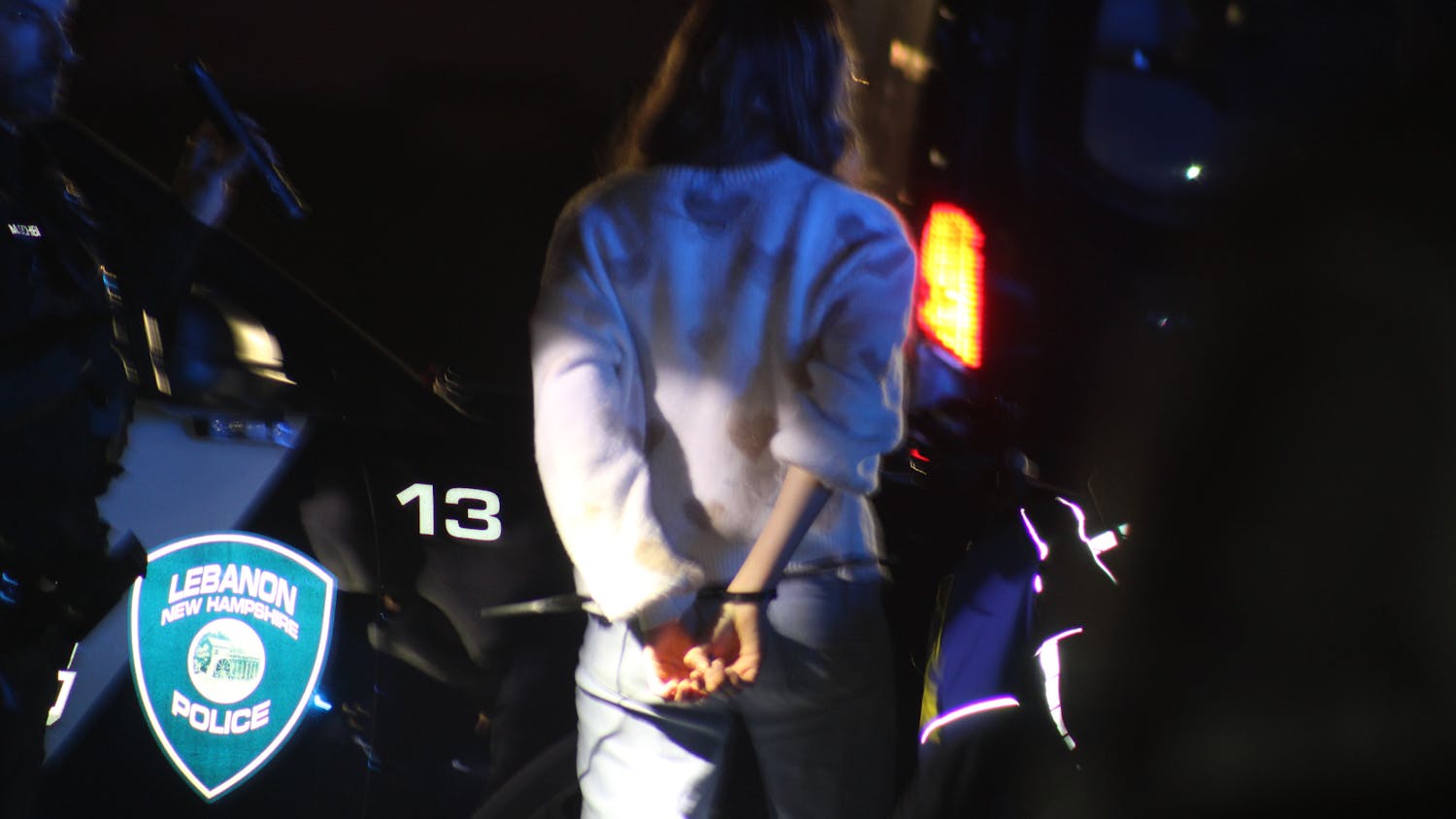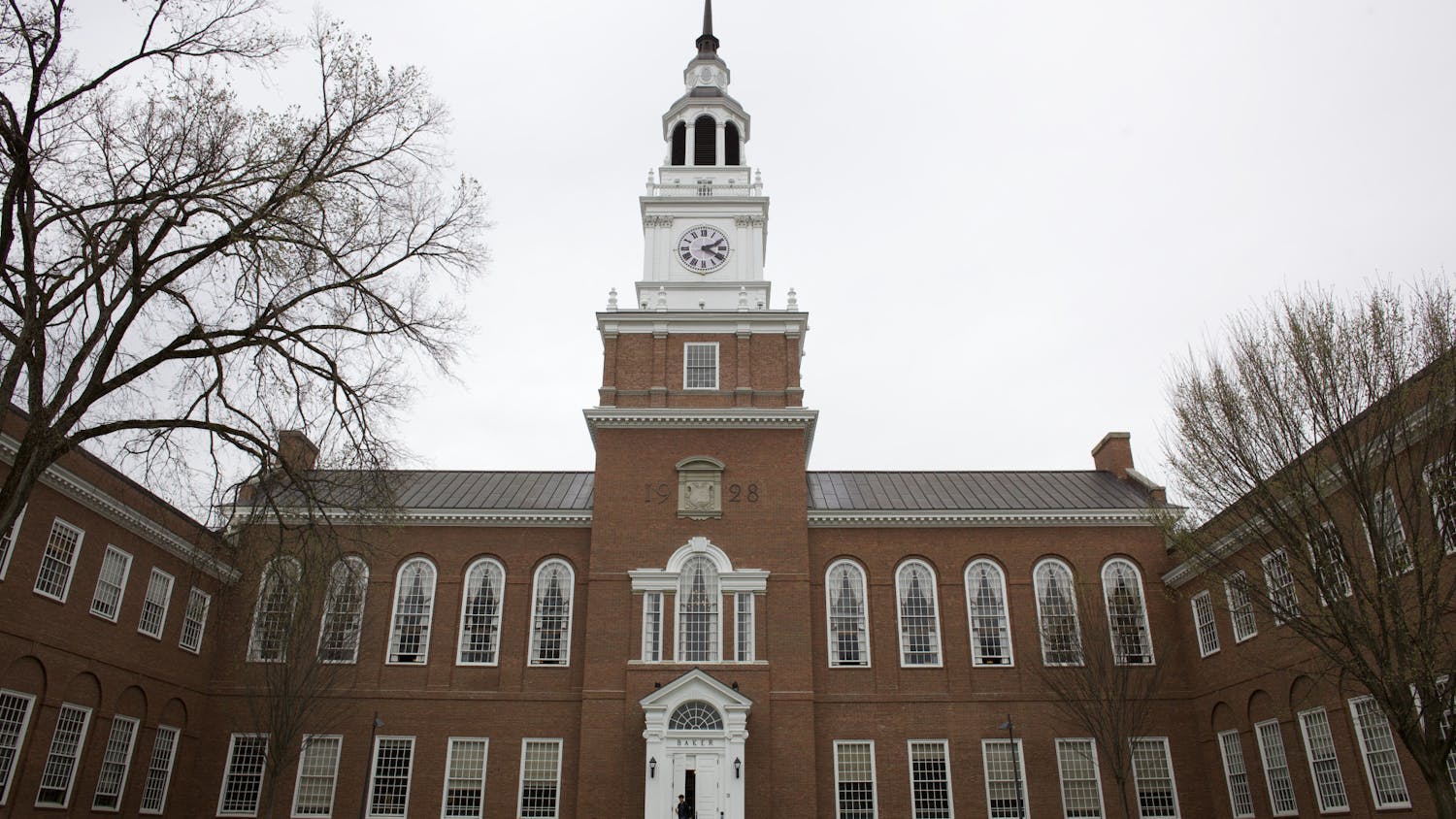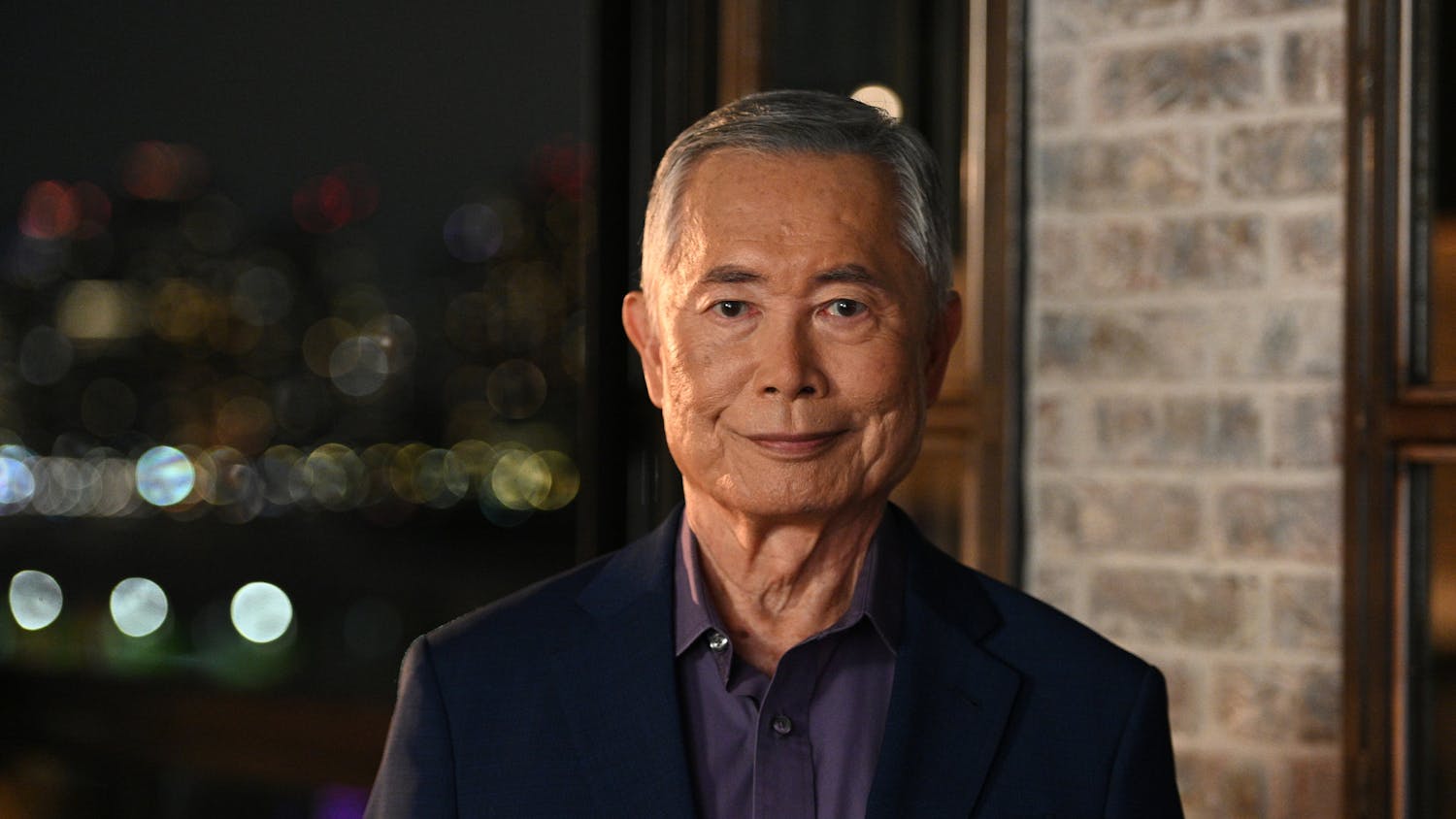Sponsored by the Dartmouth Club of the Upper Valley and a slew of local businesses, the regional winter games of the Special Olympics took place Saturday before a warm showing of community support at the Dartmouth Skiway and Gariplay Field.
The games marked the first time that the Special Olympics, an international organization that offers the opportunity for the mentally challenged to participate in high-level athletics, held a regional competition in the Upper Valley.
Nearly 130 athletes competed in alpine skiing, cross-country skiing and snowshoeing events according to their age or skill levels.
"I go fast -- and I'm better than you," alpine skier Natalia Licari said to her coach, Bob Michael.
Coaches like Michael were among the many volunteers who trained and encouraged the athletes while they competed.
"It's very rewarding to be able to give my time to somebody else who appreciates it," Michael said.
Tucker Foundation Dean Stuart Lord said that about 90 Dartmouth students had volunteered to help during the games.
Along with other members of the women's novice crew team, Akay Tuncak '06 served as a "gatekeeper" to ensure that the competitors completed the requirements of each course and help those who fall or miss a gate.
"I think the Special Olympics itself is awesome," Tuncak said.
The Dartmouth men's and women's tennis teams also contributed their time to the snowshoe events held at Gariplay field, and Alpha Delta and Chi Gamma Epsilon fraternities helped set up many of the courses.
"We will celebrate that people from different walks of life can work together and support each other and have fun doing it," Lord said at the convocation ceremonies.
In total, about 230 volunteers from the Upper Valley area helped manage and organize the games.
"When you see it's not just the athletes, it's all the community involved and having a good time -- it's just such a good feeling," said Ruth Bleyler, a volunteer on the management team for the games.
"Seeing it gives them an opportunity to do something that they don't do that is often out of reach unless it is a special program," Bleyler said.
Games Director Pete Bleyler '61 began the club's effort to organize and plan the event in November of 2001. Bleyer and the club raised between $13,000 and $14,000 from local businesses for the event.
"The businesses, if they were in the position to be able to make a contribution, just readily stepped up," Bleyer said.
Saturday's games drew its competitors from northern New Hampshire and all of Vermont. All of the competitors remain eligible for their respective state competitions despite their individual finish in an event.
"The best part of being in a small state is that every athlete can go on to the next level," Director of Programs for Special Olympics New Hampshire Priscilla Dowse said. In more populous states, only a certain percentage of the competitors who finish the strongest in regional games are eligible for the state games.
At the state games, about eight participants out of all gold medal winners are randomly selected to move on to the international games, which are held every four years. Nagano, Japan, the site of the 2000 Winter Olympics, will host the international Special Olympics in 2005.
"What makes it such a unique athletic organization is that we're not elitist," Dowse said.
All of the participating athletes received a ribbon despite their finish. First through sixth place finishes were awarded a colored ribbon that signified how they placed in the event.



